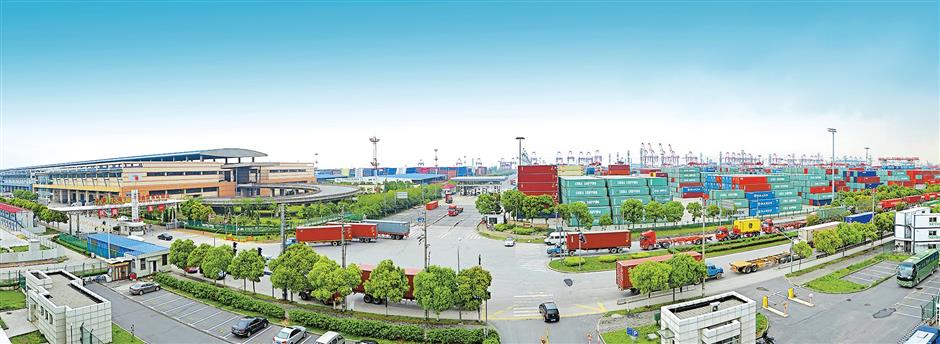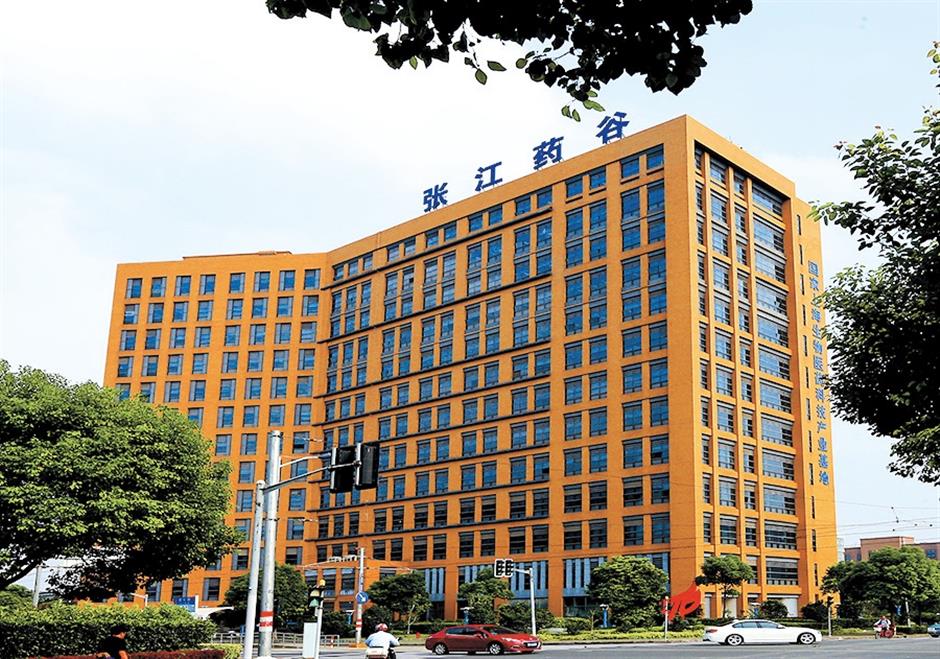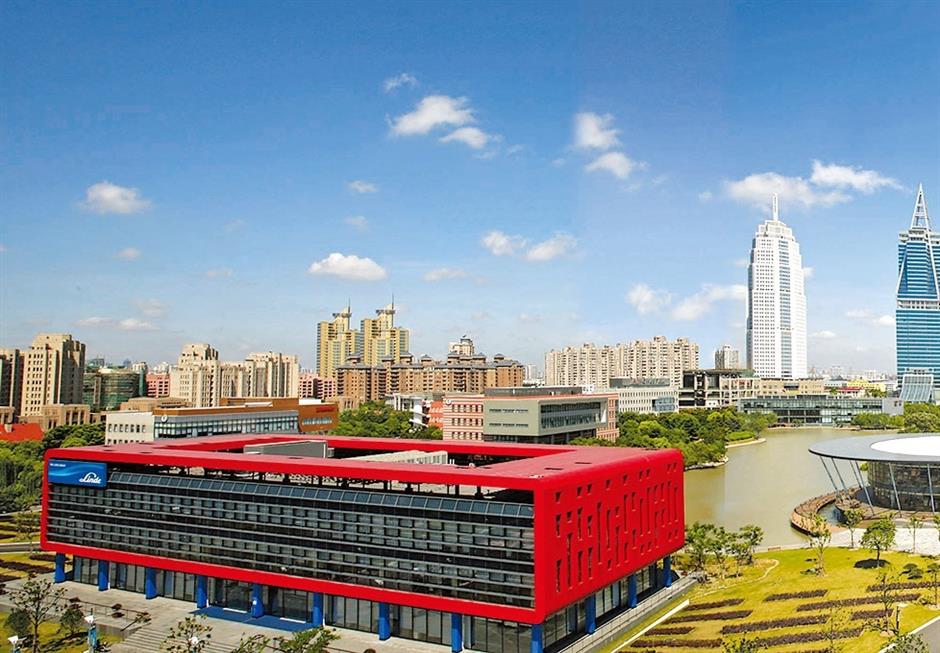Free trade zone ushers in an exciting era

The Waigaoqiao Bonded Area of the China (Shanghai) Pilot Free Trade Zone
Sweden-based Volvo Construction Equipment is a pioneer in tapping the opportunities of the five year-old Shanghai Pilot Free Trade Zone, with the creation of the zone’s first financial leasing company.
Under preferential policies initiated in the zone, Volvo Financial Leasing (China) Co was allowed to engage in a sideline commercial factoring business relevant to its main business.
Factoring refers to a type of debt finance in which a business sells its accounts receivable to a third party, or factor, at a discount to raise cash.
As one of Volvo’s four major headquarters, Jinqiao-based Volvo Construction Equipment accounts for about a fourth of the group’s global business around the world.
“Allowing financial leasing companies to engage in sideline commercial factoring business is a major breakthrough in the FTZ’s financial innovation,” said Zhan Xu, vice president and director of Volvo Construction Equipment. “It raises the level of financial leasing services and expands the scope of business.”

Zhangjiang Pharma Valley
In the field of health care, the zone’s opportunities are also producing breakthrough results.
A drug to treat cancer has flowed to the China market quickly after its developer tapped the so-called Marketing Authorization Holder program.
Fruquintinib capsules, developed by Hutchison MediPharma, or Chi-Med, in the Zhangjiang Pharma Valley, is China’s first independently developed drug for the treatment of metastatic colon cancer. It was approved for public use by the National Medical Products Administration earlier this month.
The marketing authorization program was initiated in the free trade zone to enable pharma research and development groups to use contract manufacturers to produce drugs in China.
Previously, those groups had to build their own production facilities or transfer the technology if they lacked the funds to do so.
In essence, a license to manufacture drugs was tied to drug approval, a system that brought low returns to developers of new drugs.
“Without the new system, Fruquintinib would not have reached the shelves so readily,” said Dr Zhenping Wu, vice president of Chi-med.
The free trade zone has indeed been at the forefront of economic reform and decentralization.

Jinqiao Development Zone
A pioneer
By the end of June, 2,620 business projects had been launched there. Further opening-up in industries such as financial leasing, engineering design and travel agencies has made notable progress.
Among those achievements were China’s first reinsurance broker, the first foreign-funded vocational training institute, the first wholly foreign-owned yacht design company, the first foreign medical institute, the first wholly foreign-owned engineering design firm and the first foreign certification company to adopt international food safety standards.
Even cutting-edge electric car manufacturer Tesla Inc landed a deal with Chinese authorities to build a new auto plant in Lingang on the southeastern tip of the free trade zone.
The plant will be the first factory outside the US for the California-based company and will double Tesla’s global manufacturing capability.
The free trade zone reported 1.35 trillion yuan (US$197 billion) of exports last year, up 15 percent from a year earlier. That accounted for 38.6 percent of Shanghai’s exports during the period.
Annual container throughput at the Yangshan and Waigaoqiao ports totaled 36.38 million twenty-foot equivalent units, a measure of container cargo.
That ranked Shanghai as the world’s largest container port for an eighth year.
More than 54,000 companies are registered in the free trade zone, with nearly 10,000 of them foreign-invested.
The “negative list” that restricts foreign investment has been shortened from 190 items in 2013 when the free trade zone was established to 45 this year.
The approval process for companies in the zone has been shortened to three days from the previous three to six months. By the end of last year, the zone recorded more than 1,900 foreign investment projects.
A system has been implemented which provides for overseas shipments to enter the country without immediate customs clearance.
Logistics companies operating in the zone enjoy simplified customs, immigration and quarantine procedures. That reduces warehousing and logistics costs.
Never content to stand still, the free trade zone issued 25 rules in June to test the ground for further liberalization of the financial sector.
Under the rules, commercial banks would be allowed to form financial asset investment and management companies without any cap on foreign ownership, and foreigners would be allowed to take majority stakes in domestic life insurance companies based in the zone.
The zone will also issue intellectual property protection rules for the development of Internet, e-commerce, big data and related areas and accelerate the Shanghai-London Stock Connect.
President Xi Jinping has praised the Shanghai Free Trade Zone for significant progress.
“In general,” he said, “the original intention has been achieved.”
















